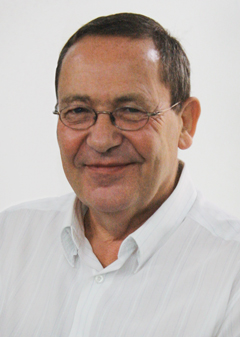SUMMARY
This is AI generated summarization, which may have errors. For context, always refer to the full article.
 MANILA, Philippines – In May 2010, Benigno Aquino III was elected on a huge wave of hope: that he would bring back honesty, put an end to violence, corruption, human rights violations and impunity, and that, in the absence of corruption, he would end poverty.
MANILA, Philippines – In May 2010, Benigno Aquino III was elected on a huge wave of hope: that he would bring back honesty, put an end to violence, corruption, human rights violations and impunity, and that, in the absence of corruption, he would end poverty.
Three years later, what has been achieved. What are the perspectives?
There is no doubt the climate has changed. Aquino did not use his office to enrich himself, his family, or cronies. This has earned him praise from civil society and international institutions.
Has corruption also decreased where citizens and companies are affected, however? The answer is clearly “no.”
Corruption is everywhere. In many public agencies, it is organized in networks, making it difficult to break up. The government needs a much more comprehensive strategy to reduce the endemic corruption.
In November 2009, 58 people were murdered in the Maguindanao massacre. Forty-two months later, the court trial has no prospect of coming to an end. Key witnesses for the trial have died under strange circumstances.
The 2013 Impunity Index done by the Committee to Protect Journalists (CPJ) ranked the Philippines third worst in terms of unsolved murders of journalists, next only to Iraq and Somalia. In the 2013 Press Freedom Index done by Reporters Without Borders, the Philippines ranked 147th out of 179 countries.
Reports after the 2013 Philippines elections indicated that vote buying appeared heavier than in previous elections. In some places, even the secrecy of voting was not respected.
The efforts to improve governance and the human rights situation have not been successful because the administration did not touch the source of the problems: the grip of powerful families with huge patronage structures on a weak state.
The socio-economic situation of the Philippines is highly contradictory. While the growth rate in 2012 reached 6.6 % and the country has been upgraded to investment grade status, the inflows from foreign investments stagnated, remaining at a very low level.
Net inflow of FDI to the Philippines in 2011 was only at US$1.9 billion, compared with 7.4 billion to Vietnam, a country with similar size and population. In 2012, this basically stagnated.
The World Bank’s 2012 rankings in terms of doing business puts the Philippines at 138th, slipping two places. In the global tax rankings, the Philippines slipped 8 places, ranking 143rd out of 185.
Statistics from 2012 show the growth did not lead to a relevant increase of jobs, nor did it reduce the 28% poverty rate since 2006. A study by Cielito F. Habito concluded that the 40 richest families of the Philippines accounted for 76.5% of the increase in the economy’s GDP from 2010 to 2011, compared to 2.8% in Japan and 5.6% in Malaysia.
Key problems
Inclusive growth needs fundamental structural reforms, like the opening of the monopolized local and national markets, the rigorous reform of the nightmare bureaucracy, targeted investments on key infrastructure bottlenecks, and the systematic development of the agricultural sector.
Competencies have to be decentralized to strong, democratically controlled regional governments which could push forward customized socio-economic development of the regions.
There is a broad consensus among Philippine political scientists, analysts in the media, and foreign observers that the problems of the Philippines are closely related to the strong links between political and economic power in the hands of political families which control the country and the majority of its provinces. Not since the 1986 elections have political families so openly dominated with their patronage structure.
The Aquino administration has not addressed this key problem. President Aquino has refused to consider any discussion on the reform of the Constitution, which contains key parts vital for the continuation of these structures.
Three legislative projects in the 15th Congress aimed to remedy this problem. In both houses, drafts of an overall “competition law” passed the committees, but never appeared on the agenda of the plenary.
A draft bill on the “Freedom of Information” also did not make it to final voting because President Aquino declared it not urgent. A modern Political Party Law passed the House in third reading but was stopped by President Aquino the day before the second reading in the Senate. These laws would have had a significant impact on the power structures controlled by the big families.
If President Aquino continues to protect the traditional power structures, none of the problems of weak democracy, hardened poverty, and poor governance can be solved. This brings with it the consequence of making him a tragic figure in history, who postponed the urgent modernization of his country for 6 more years in spite of his personal integrity.
If he would address these issues, he could become the president who liberated the Philippines from the burdens of its colonial heritage, preparing it for a bright future in a globalizing world. – Rappler.com
The author is the resident representative of the Konrad Adenauer Stiftung in the Philippines
Add a comment
How does this make you feel?
There are no comments yet. Add your comment to start the conversation.